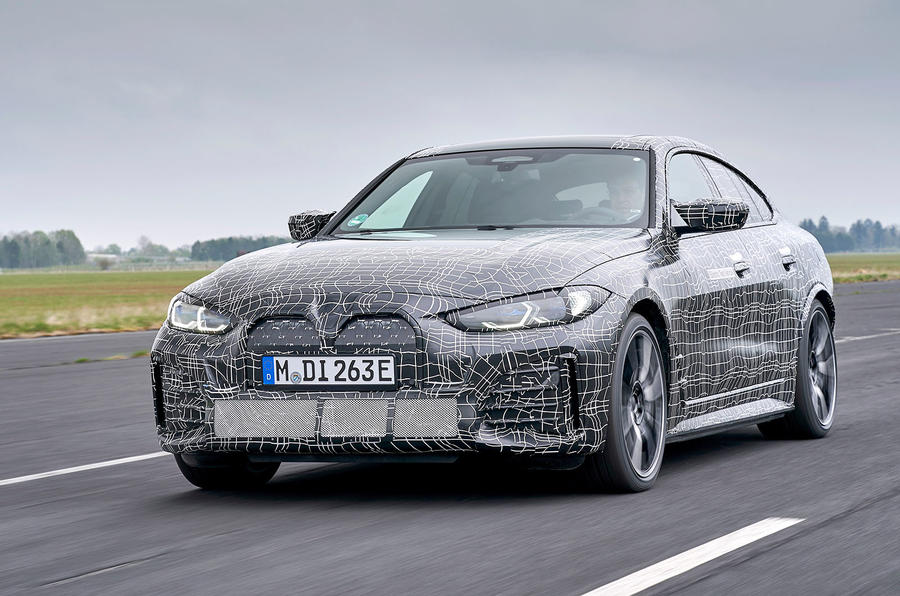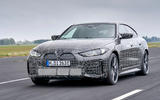Here we go, then. After a rousing statement of intent from BMW chairman Oliver Zipse, the showing of a concept and the unveiling of the i4 production model, we’ve finally got our hands on the new BMW i4.
Based on the upcoming second-generation 4 Series Gran Coupé (alongside which it will be produced at BMW’s Munich factory from later this year), it joins the BMW i3 hatchback, and iX3 and iX SUVs in a four-strong line-up of EVs from BMW’s i sub-brand.
It's one of up to 12 electric models that BMW plans to be offering worldwide by 2023.
The four-wheel-drive M50 xDrive version driven here is one of two initial i4 models, the other being the rear-driven eDrive40. Together, they set out to challenge the likes of BMW i4 challenges Tesla's Model 3 and the Porsche Taycan, as well as the upcoming Audi A6 E-tron and Mercedes-Benz EQE in what's shaping up as an intriguing contest for four-door superiority in the EV ranks.
As well as being part of BMW’s first-ever electric saloon offering, the range-topping i4 is also the first electric model from its M performance car division. That said, it’s described as an alternative to the M340i, rather than an electric equivalent of the M3 Competition.
Unlike the iX, which sits on its own dedicated EV platform, the i4 is based on BMW’s familiar CLAR platform. This aluminium-and-steel structure has been extensively modified to accept an electric powertrain along with all its ancillaries, including a large battery bolted to the floorpan and a power electronics system that takes up much of the under-bonnet space.

Key styling elements of the i4 include its bold front grille, which is similar in size to that of the latest BMW 4 Series but, without the need for engine cooling, has been blanked off. The i4 also receives unique detailing, with blue trim highlights matching those within the headlamps to immediately distinguish it as one of BMW’s electric models.



























Join the debate
Add your comment
@Andrew1 - very good point that BMW is restraining the electric car by recycling an old platform, which isn't something you'd see on the Jaguar I Pace for example.
BMW says the new i4 electric car will arrive in the UK in November 2021, with prices starting at £51,905 for an eDrive40 Sport. M Sport versions raise the price to £53,905, while the much more powerful M50 version starts at £63,905.
Re: Nicfaz
The top speed is limited by motor design and single speed transmission.
Basically motors have a speed below which they generate constant torque, for a performance EV you normally gear the car to be traction limited below this speed.
Above this speed you go into the flux weakening zone where the motor delivers constant power so torque drops off as speed increases. In practice as you enter this zone you start to see power fall off as speed increases.
The motors Tesla uses are able to retain efficiency and power further into the flux weakening zone. This is how they have a single speed motor be traction limited at the bottom end and still be able to go to 160mph.
BMW evidently can't do this at the moment (with an acceptable motor size/mass) so have just geared up the motor at the cost of acceleration and settled at a slower top speed. Porsche have retained acceleration by fitting a traction limited first gear.
If you can design the motor to work without a two speed gearbox that will be much cheaper and also lighter even if you had to make the motor larger to increase the torque.
Re cost vs Tesla, remember that the Tesla is paying a 10% tarrif at the moment and this goes away when giga Berlin comes on line.